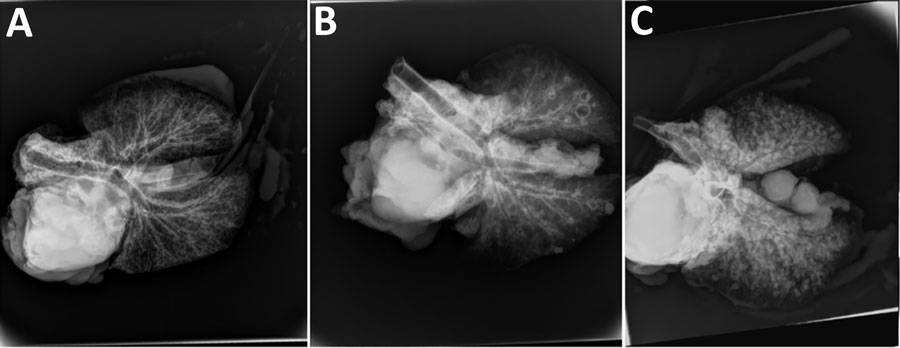Disclaimer: Early release articles are not considered as final versions. Any changes will be reflected in the online version in the month the article is officially released.
Volume 31, Number 5—May 2025
Research
Postexposure Antimicrobial Drug Therapy in Goats Infected with Burkholderia pseudomallei
Figure 3

Figure 3. Examples of postmortem pulmonary lesions observed by using radiography in extirpated lungs of goats infected with Burkholderia pseudomallei in study of postexposure antimicrobial drug therapy. A) Goat 1197, not treated, showing no visible abscesses; B) goat 8430, treated with amoxicillin/clavulanate, showing moderate abscesses; C) goat 8549, not treated, showing severe abscesses.
Page created: March 13, 2025
Page updated: April 22, 2025
Page reviewed: April 22, 2025
The conclusions, findings, and opinions expressed by authors contributing to this journal do not necessarily reflect the official position of the U.S. Department of Health and Human Services, the Public Health Service, the Centers for Disease Control and Prevention, or the authors' affiliated institutions. Use of trade names is for identification only and does not imply endorsement by any of the groups named above.